05:19

"Through our eyes and creations, I want to show the facts we see," says Tonk Hsueh, a filmmaker and vlogger.
Hsueh is one of many vloggers and entrepreneurs from Taiwan chasing their dreams in the mainland and taking part in the Cross-Strait Youth Viewpoint Forum at the Taiwan Assembly Hall in Beijing.
The event, held last week, is an influential and significant platform for academic exchanges and cultural dialogue among youths from both sides of the Taiwan Straits. It's a space where they can discuss current affairs, express opinions about cross-strait relations, and along the way bridge misunderstandings and forge lasting ties.
Under the theme "New Media, New Vision," the 28th edition of the forum provided an opportunity for internet celebrities and cultural start-up founders to share their creations, stories and viewpoints about how to better tell real stories through digital platforms.
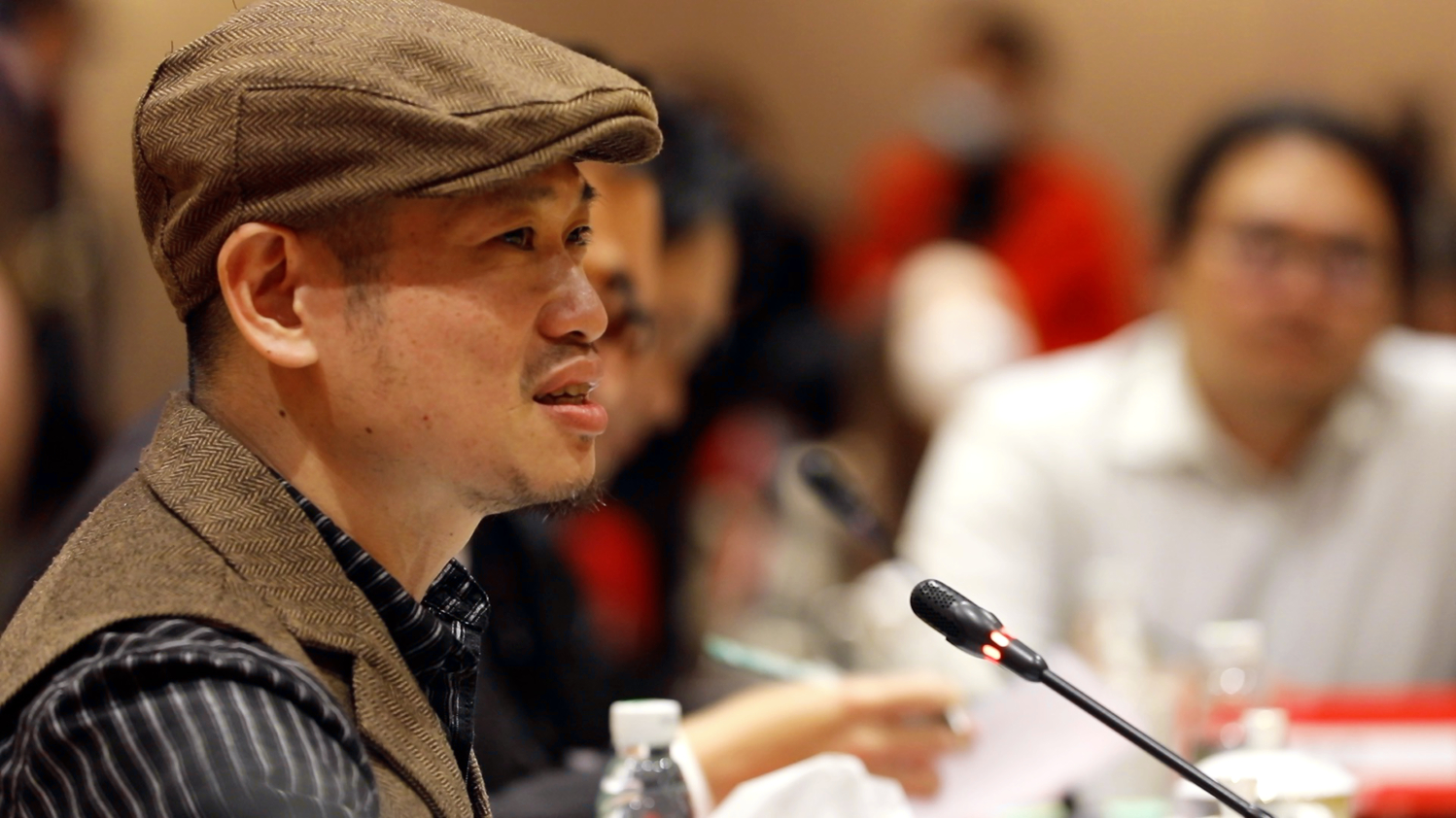
Tonk Hsueh, a Taipei-born filmmaker and vlogger, shares his stories at the Cross-Strait Youth Viewpoint Forum. /CGTN
Tonk Hsueh, a Taipei-born filmmaker and vlogger, shares his stories at the Cross-Strait Youth Viewpoint Forum. /CGTN
Born in Taipei, the 48-year-old filmmaker is now living in central China's Wuhan, the city hardest hit by the coronavirus outbreak in the country.
During the epidemic, he decided not to leave and instead hit the streets to film a short documentary. He called it "76 Days in Wuhan of a Director from China's Taiwan," in reference to the number of lockdown days in the city.
The short film features rare scenes of medical staff, drivers, delivery people, and volunteers working at the front line of the battle against the coronavirus, and has received millions of views since its online release.
"Despite all the geopolitical differences, we are one family. So I think [my work] has a profound meaning," the director told CGTN, adding, "We can have common feelings and close connections when we've shared the same experience."
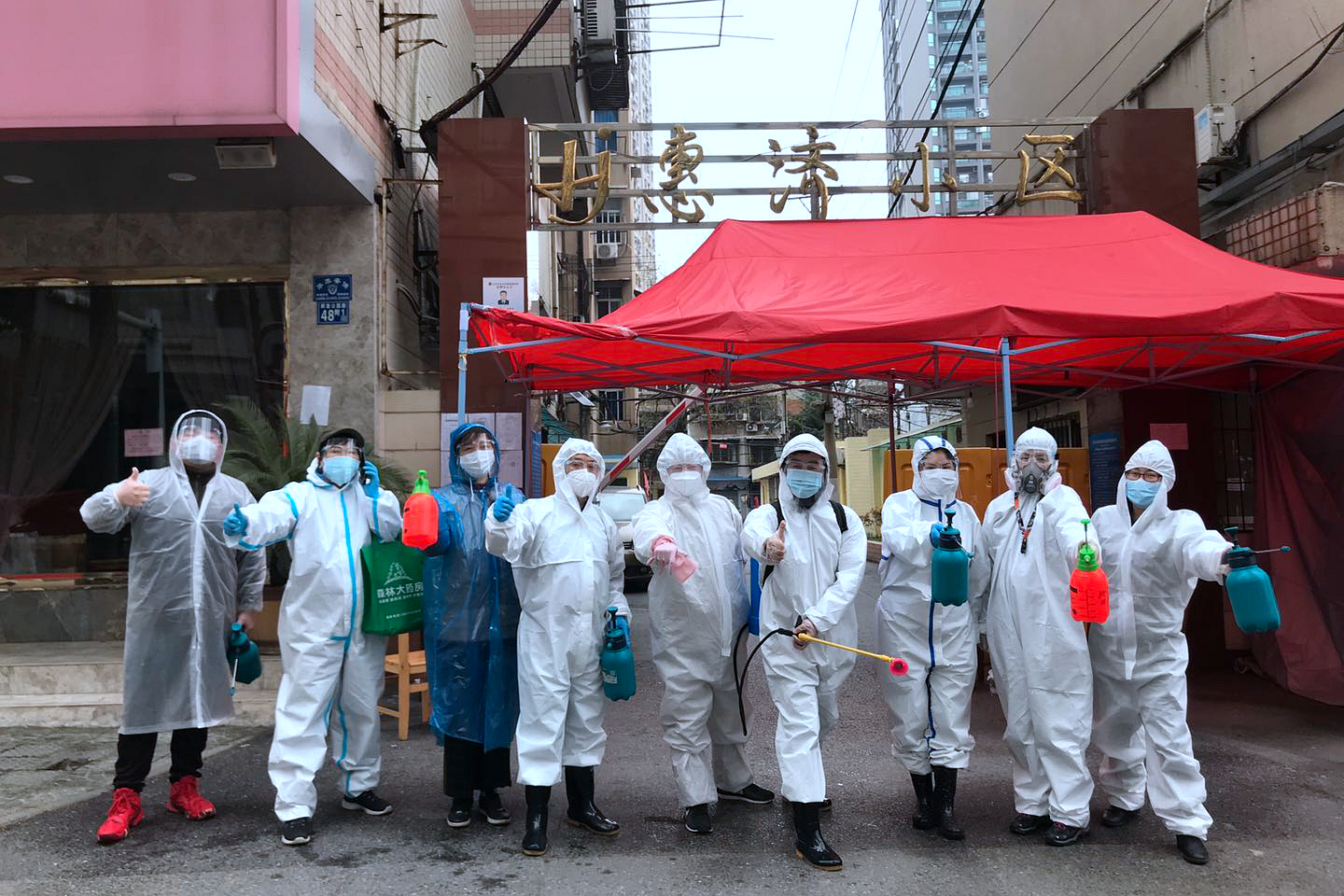
During the epidemic, Taiwan filmmaker Tonk Hsueh decided not to leave Wuhan and instead hit the city's streets to film a short documentary, showing what he saw during Wuhan's 76-day coronavirus lockdown. /Courtesy of Tonk Hsueh
During the epidemic, Taiwan filmmaker Tonk Hsueh decided not to leave Wuhan and instead hit the city's streets to film a short documentary, showing what he saw during Wuhan's 76-day coronavirus lockdown. /Courtesy of Tonk Hsueh
"What makes me more determined to produce new media content is that the Democratic Progressive Party authority now is completely controlling public opinion, and trying to mute the different voices that they don't want to hear," said Li Jian-nan, an author and political observer from Kaohsiung City in southern Taiwan.
The seasoned observer started to post videos on multiple digital platforms to share his opinions and analysis on cross-strait issues about one year ago, and now has more than 2.4 million followers on ByteDance's Jinri Toutiao, a popular news app in China.
Internet users from both sides can discuss issues via their comments, and though there are arguments and agreements, such discussions help deepen mutual exchanges and dispel misunderstandings, according to Li.
Another participant, Lin Yi-yen, told CGTN that she initially started doing vlogs to share her life in the mainland, but she soon realized the infinite possibilities of social media, which is "intertwined with our social circles and lives."
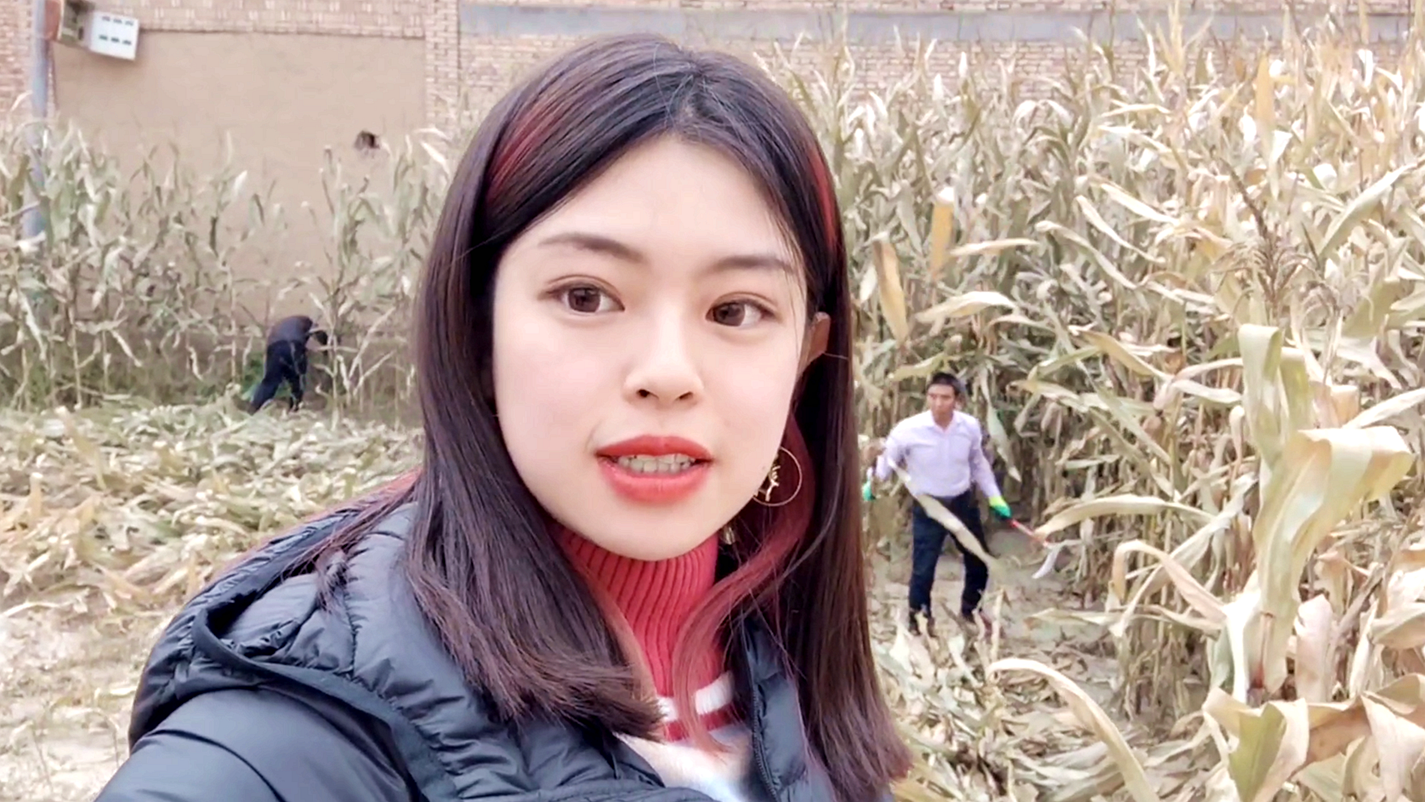
Lin Yi-yen is a vlogger who makes a number of videos related to public welfare and poverty alleviation. /Courtesy of Lin Yi-yen
Lin Yi-yen is a vlogger who makes a number of videos related to public welfare and poverty alleviation. /Courtesy of Lin Yi-yen

Lee Shao-hua is a founder of the Rainbow and Angel Coffee House in Beijing, which is staffed by disabled people. /Courtesy of Lee Shao-hua
Lee Shao-hua is a founder of the Rainbow and Angel Coffee House in Beijing, which is staffed by disabled people. /Courtesy of Lee Shao-hua
The vlogger has made videos related to public welfare and poverty alleviation and donated the revenue to children living in remote and impoverished areas.
She also visited far-flung villages and counties that used to be officially categorized as impoverished, like Guanghe County in northwest China's Gansu Province, and learned how locals improved their lives and eventually got out of poverty.
"Through the videos, people in Taiwan might know I'm doing well here, and that the mainland is not like what they imagined. In fact, the two sides can develop and communicate peacefully."
For Yang Pin-hua, a singer from the Amis ethnic group in Hualien County, in the eastern part of Taiwan island, and now a Beijing resident, music can always be a medium bringing together people from both sides, especially members of ethnic minorities.
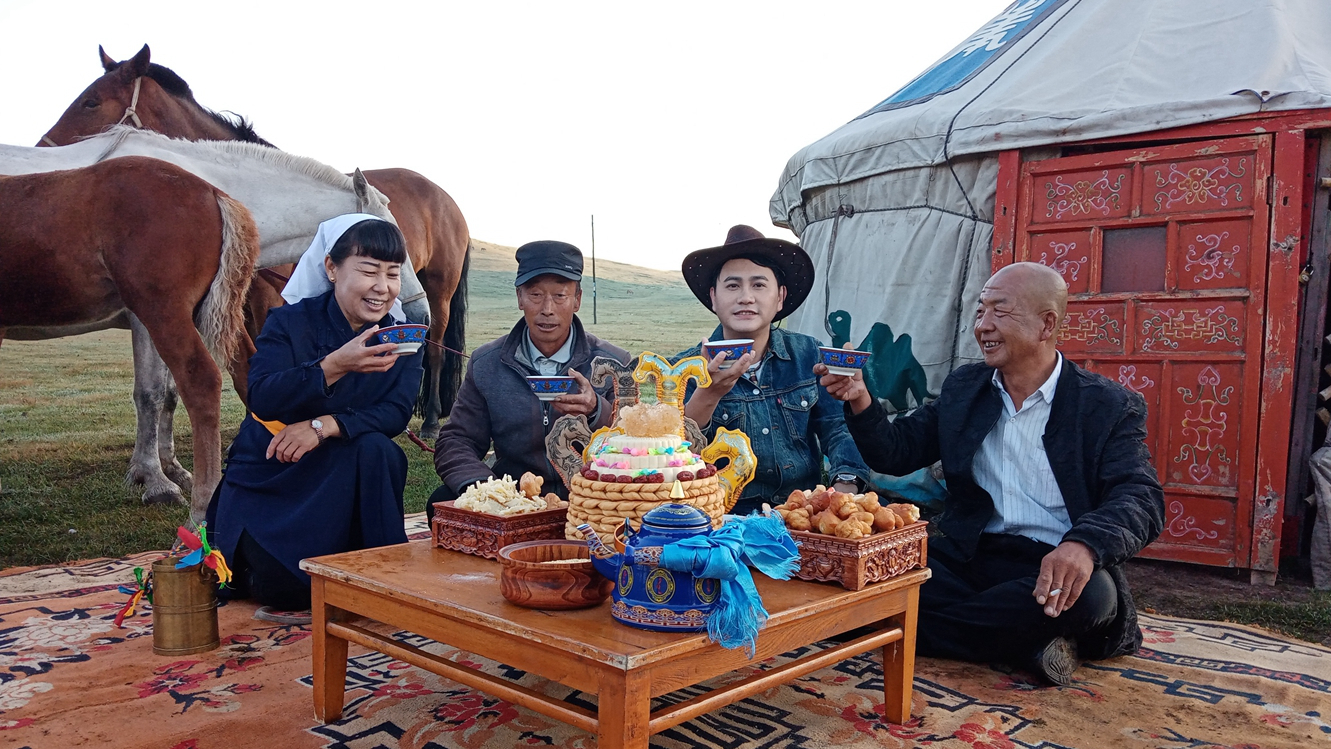
Yang Pin-hua (R-2) is a singer from the Amis ethnic group in Hualien County, Taiwan, southeast China. /Courtesy of Yang Pin-hua
Yang Pin-hua (R-2) is a singer from the Amis ethnic group in Hualien County, Taiwan, southeast China. /Courtesy of Yang Pin-hua
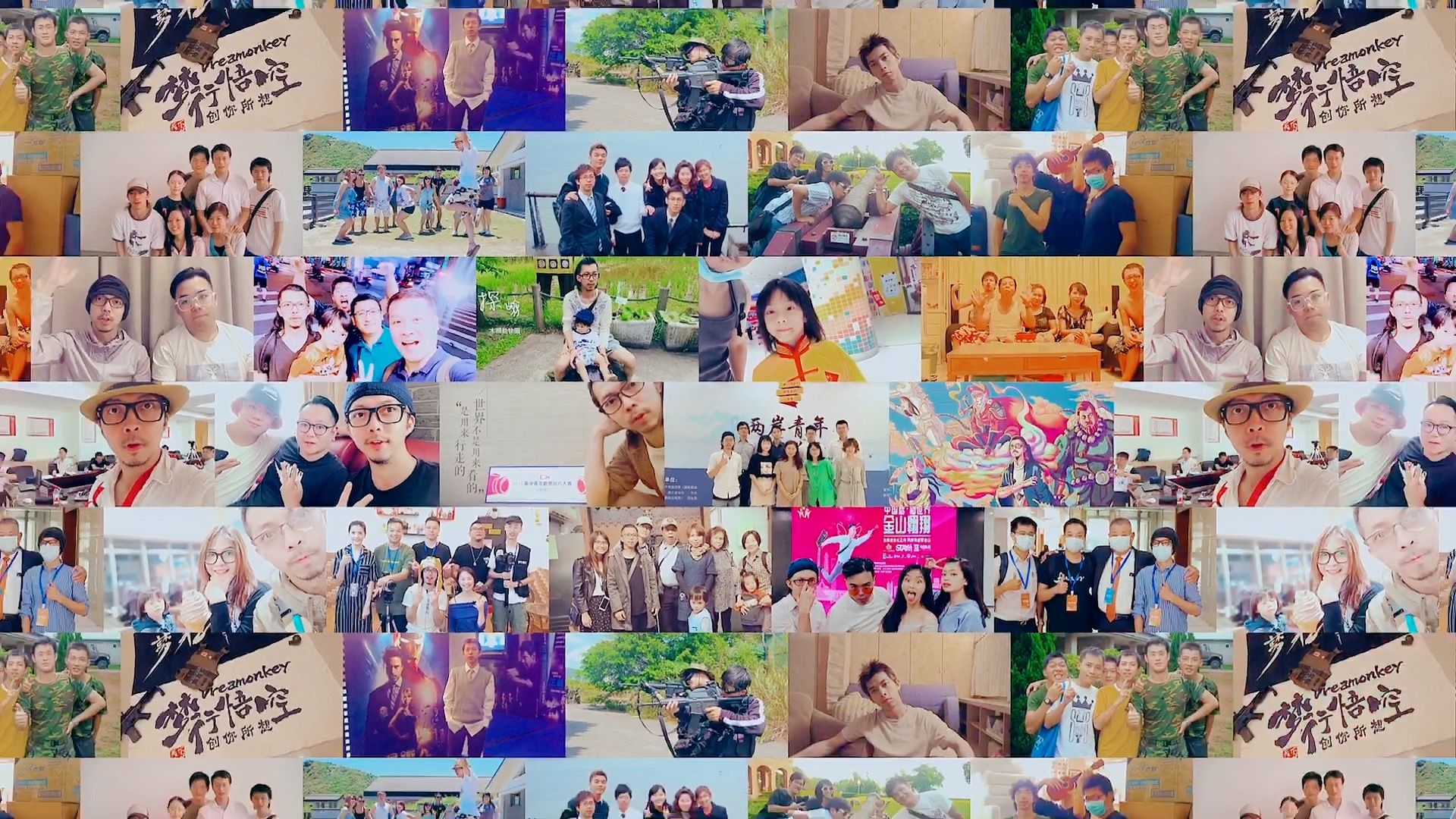
Stills from vlogs by Rockice, a vlogger and entrepreneur from Taiwan who is now living in Guangdong Province. /Courtesy of Rockice
Stills from vlogs by Rockice, a vlogger and entrepreneur from Taiwan who is now living in Guangdong Province. /Courtesy of Rockice
"Through music and music videos, we can present the beauty and charm of different cultures of ethnic minority groups in the mainland," he said. "People can hear it, see it and feel it. Music does not abide by borders and straits."
"Dear Ulanqab," Yang's first song of 2021, was inspired by a trip he took to the eponymous city in Inner Mongolia Autonomous Region. In the song, he combines Mongolian music elements like long-tone folk songs and morin khuur (horse-headed fiddles) with ancient Amis melodies.
"It is the first time for such a fusion of [music of] ethnic minorities on both sides of the straits," the performer told CGTN.
"We can sing it out loud for those absent from textbooks."
(Video by Hong Yaobin; Cover image by Liu Shaozhen)

